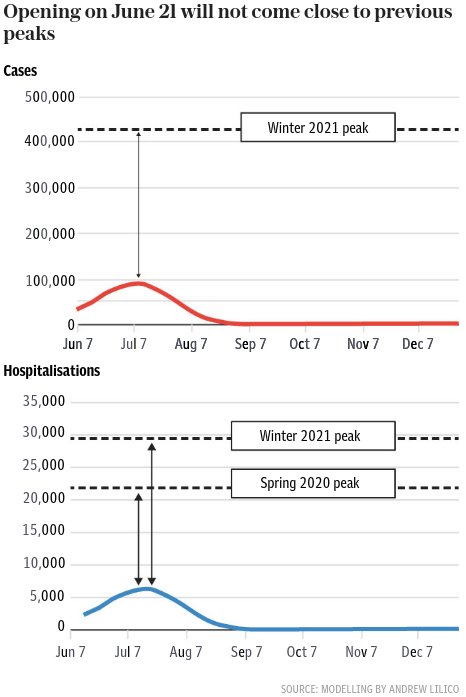As Sarah Knapton has revealed in these pages, the brutal postponement of Freedom Day coincided with the release of a bunch of alarmist models predicting a huge new wave of deaths. The most pessimistic, inevitably from Imperial College, forecast 203,824 deaths over the next year. It did so by assuming just a 77-87 per cent reduction in hospitalisations following two vaccinations, despite the fact that real world data shows two vaccinations to be between 92 per cent (AstraZeneca) and 96 per cent (Pfizer) effective in preventing hospitalisation. That would cut the Imperial forecast of deaths by a gob-smacking 90 per cent to 26,854.
This keeps happening. In April the modellers assumed a 30 per cent effectiveness for the vaccine at preventing the spread of the virus. This was described as “a pessimistic view – but it is plausible, it’s not extreme”, by Professor Graham Medley, chairman of the SPI-M sub-group of Sage. It turns out it was far from plausible. At the end of March the BBC’s favourite modeller, Imperial College’s Neil Ferguson, was forecasting that by June 21, even with “optimistic” assumptions, less than half of Britain would be protected against severe disease by vaccination. The true figure is over 80 per cent.
https://www.telegraph.co.uk/news/2021/06/21/flawed-modelling-condemning-britain-lockdown/
